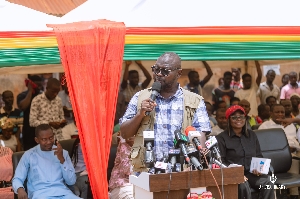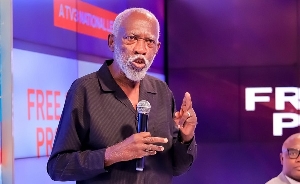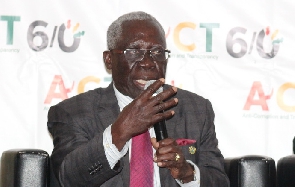Despite Ghanaian Defence Ministry officials debunking the claim that Washington is not building military base in Ghana, some Ghanaians, with their high conspiracy theory syndrome, belief that there is a US military base and that the US has built a secret tunnel from the new US Embassy complex to the Kotoka International Airport in Accra. Much of the credence of the rumour is based on the increasing US military activities in Africa following the September 11, 2001 terrorists’ attacks against the US to contain international terrorism. But the increasing US military activities in Africa go beyond narrow military concerns; it has a broader geopolitics agenda, which is its energy security.
From newly oil rich Mauritania down to the Gambia to Sao Tome and Principe to Equatorial Guinea to South Africa, that’s effectively the entire Gulf of Guinea to the south West African coast to some of the equatorial African states such as Uganda, oil is being discovered day in and day out. Liberia’s ex-president Charles Taylor spoke of his country’s oil potential before vacating his presidency in 2003. This is against the background of oil dwindling world-wide. While Ghanaians may not have physical proof of their country having a US military base, their rumour is fed by the ongoing climate in Africa, where the US is building military bases in some African states to secure its energy supplies. According to the BBC, the US is currently building a naval base in Sao Tome and Principe to protect its oil interests. Sao Tome and Principe also holds a strategic position in the oil rich Gulf of Guinea from which Washington could monitor the movement of oil tankers and guard oil platforms. The growing US military bases in Africa come against the background of the fact that since the 1940s, according to Michael Renner, director Washington-based Global Security Project at the Worldwatch Institute, the US has “gone to great length to maintain its dominance over world oil.” Effectively, pretty much of US military bases in the world are strategically aimed at protecting oil and gas supplies or as Renner explains, aimed at “influencing the routing of oil export pipelines, and patrolling the sea-lanes through which much of the world’s oil is shipped.”
Ghanaians wild-eyed believe of a US military in their country may not be far-fetched. According to the Nigerian Prof. Toyin Falola, Professor of history at the University of Texas in Austin, USA, today, the United States has over 175 military bases in Africa, and it imports more oil from Africa than from Saudi Arabia. Whether the US has secret military base in Ghana or not, advancing technology, the increasing volatility of the Middle East region, and the rising price of Middle Eastern crude oil, increased attention has been given to expanding oil exploration and production in equatorial African states. Oil was discovered in the mid-1950s in Nigeria and Gabon, and today, multinational oil firms are investing more than a US$1 billion dollars annually in sub-Saharan Africa’s oil industry. Emerging economies—China and India—are also scrambling to gain access to Africa’s crude oil to fuel their growing economies. This has made sub-Sahara the scene of a rivalry between major powers, especially the two major global oil consumers – the United States and China. Despite China, too, increasingly looking to sub-Sahara Africa for its energy security, the United States remains the most voracious user of oil in the world.
Yet so far, this scramble for Africa’s oil has done little to promote development for the majority of Africans in the regions where oil is produced. Perhaps nowhere is the gap between oil wealth and development more evident than in Equatorial Guinea, where, despite a booming oil business producing growing revenues, this new wealth has generally not been used for the larger well-being of citizens. Equatorial Guinea ranks at the bottom of the United Nations Human Development Index (UNHDI, 2005) rankings world-wide. In Canada, the Alberta oil industry has contributed enormously to the province’s overall development. Yet why do African states consistently fail to use oil for development. Bases or no bases, Ghanaians should project how they will exploit Africa’s emerging new geopolitics of energy for their development process.













